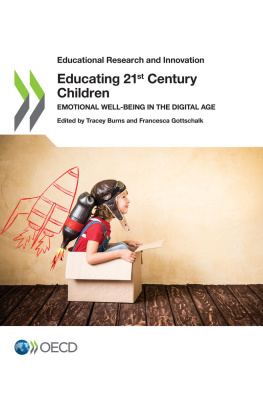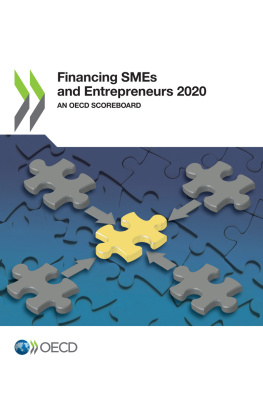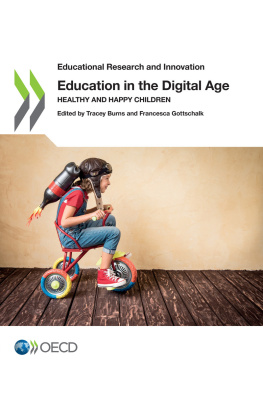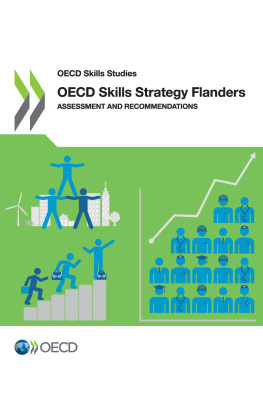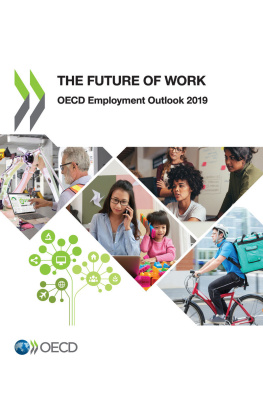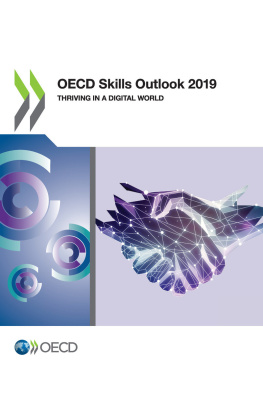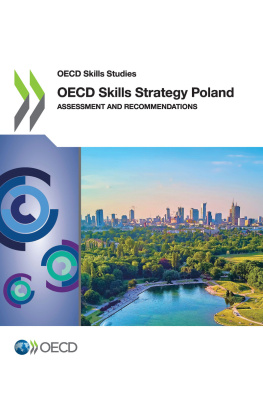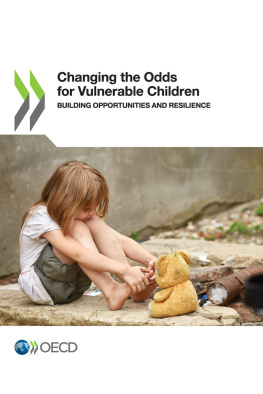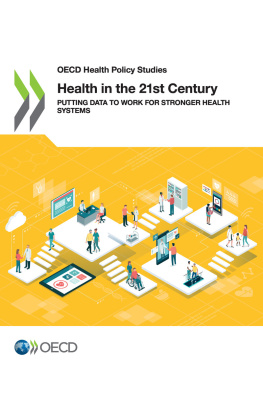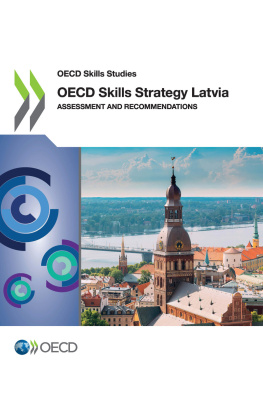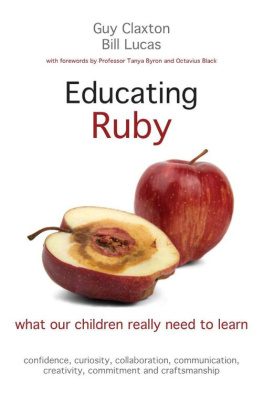OECD - Educating 21st Century Children
Here you can read online OECD - Educating 21st Century Children full text of the book (entire story) in english for free. Download pdf and epub, get meaning, cover and reviews about this ebook. year: 2019, publisher: OECD Publishing, genre: Children. Description of the work, (preface) as well as reviews are available. Best literature library LitArk.com created for fans of good reading and offers a wide selection of genres:
Romance novel
Science fiction
Adventure
Detective
Science
History
Home and family
Prose
Art
Politics
Computer
Non-fiction
Religion
Business
Children
Humor
Choose a favorite category and find really read worthwhile books. Enjoy immersion in the world of imagination, feel the emotions of the characters or learn something new for yourself, make an fascinating discovery.
Educating 21st Century Children: summary, description and annotation
We offer to read an annotation, description, summary or preface (depends on what the author of the book "Educating 21st Century Children" wrote himself). If you haven't found the necessary information about the book — write in the comments, we will try to find it.
OECD: author's other books
Who wrote Educating 21st Century Children? Find out the surname, the name of the author of the book and a list of all author's works by series.
Educating 21st Century Children — read online for free the complete book (whole text) full work
Below is the text of the book, divided by pages. System saving the place of the last page read, allows you to conveniently read the book "Educating 21st Century Children" online for free, without having to search again every time where you left off. Put a bookmark, and you can go to the page where you finished reading at any time.
Font size:
Interval:
Bookmark:
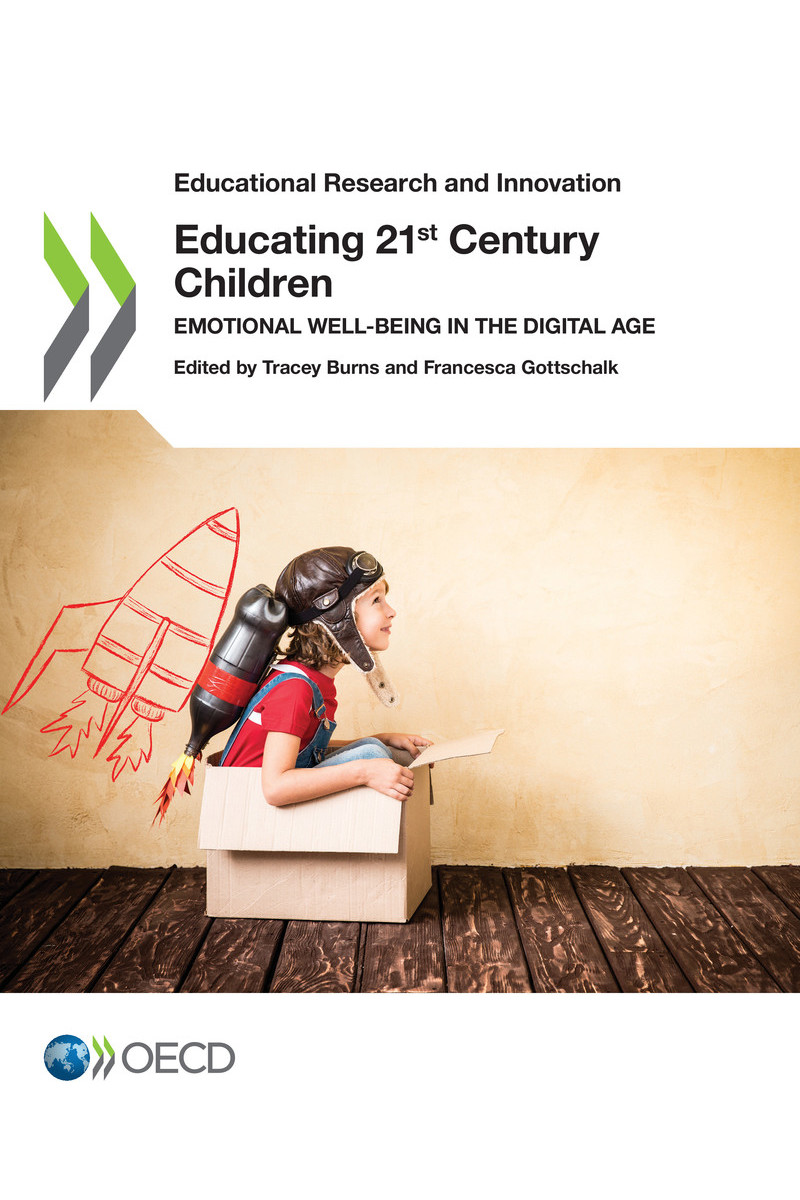
Burns, T. and F. Gottschalk (eds.) (2019), Educating 21st Century Children: Emotional Well-being in the Digital Age , Educational Research and Innovation, OECD Publishing, Paris, https://doi.org/10.1787/b7f33425-en .
Modern childrens lives have changed on a number of measures, often for the better. They have an array of digital tools to creatively express themselves. There is increased awareness of mental health issues, and support from loved ones is often only the touch of a button away. But children are also facing new challenges. They are reporting less sleep and more stress. Many children have a digital footprint before they can consent to it sometimes even before they are born. Old threats take on new complexions in the digital world, like cyberbullying.
Education must evolve with our societies, anticipating change rather than simply reacting to problems. The first decades of the 21st century are the intersection of a turn of a millennium and rapid technological change. Although people tend to be wary of change, digital tools have fundamentally transformed our lives. There is a need to understand what has changed for our children. It is equally important to determine what has not changed, for example the importance of strong and healthy relationships with family and friends.
The Centre for Educational Research and Innovation (CERI)s 21st Century Children project focuses on the nature of modern childhood. It asks the questions: what does life look like for children in the digital age? What does this mean for education? How can teachers and schools work together with parents and communities to protect and guide children while still allowing them to be children, and learn by making mistakes?
This report is part of a series that examines modern childhood. This volume focuses on the intersection between emotional well-being and digital technologies. It explores how parenting and friendships have changed in the digital age. It examines children as digital citizens, and how education systems can support them to take advantage of online opportunities while minimising the risks. It ends with a look at how education can foster digital literacy and resilience, highlighting the role of partnerships, policy and protection.
Many of these trends, especially the digital ones, are a continuously moving target, and reports such as this can become quickly outdated. This volume provides an important snapshot at this point in time. The work of education systems around the world is cut out for us as we try to stay ahead of, or at least on top of, the curve. We owe it to our children and youth to separate fact from fiction, and help support them to get the best start in life.
This publication was edited by Tracey Burns and Francesca Gottschalk from the OECD Centre for Educational Research and Innovation (CERI). Tracey Burns conceptualised this volume and leads the 21st Century Children project. Francesca Gottschalk was responsible for coordinating the contributions of the external experts. Individual Secretariat chapters were authored as follows: Tracey Burns (Chapters 1, 4, 12, 13, 14), Francesca Gottschalk (Chapters 2, 11, 12), Liam Bekirsky (Chapter 3), Quynh Nguyen (Chapter 4) and Alejandro Paniagua (Chapter 13). Within the OECD Secretariat, Alison Burke, Sophie Limoges and Leonora Lynch-Stein contributed to the final stages of preparation for publication.
The process of putting together a publication with a variety of different contributors is necessarily a collaborative one, and this volume benefits enormously from the support and suggestions of a number of individuals and institutions. The editors thank the CERI Governing Board for consistently supporting this work since its inception. Hege Nilssen and her team at the Norwegian Directorate for Education and Training additionally made possible an expert workshop in 2018, which provided the backbone of the conceptual work and expert contributions in this volume.
The editors would also like to thank the external authors who contributed to this volume (in order of their chapters): Gustavo Mesch, Andra Siibak, Catrin Finkenauer, Yayouk Willems, Madita Weise, Meike Bartels, Daniel Kardefelt-Winther, Ellen Helsper, Svetlana Smirnova, Elettra Ronchi and Lisa Robinson.
In addition, special thanks to the following countries and systems who completed the 21st Century Children Policy Questionnaire: Australia, Belgium (Flemish Community), Belgium (French Community), Canada, Czech Republic, Denmark, Finland, France, Greece, Ireland, Japan, Korea, Latvia, Luxembourg, Mexico, Netherlands, New Zealand, Norway, Portugal, Russian Federation, Spain, Sweden, Switzerland, Turkey, United Kingdom (Scotland) and United States. Your time, expertise, and co-ordination with colleagues from other ministries and departments are very appreciated.
We would like to thank past team members who contributed ideas, drafts and research papers from which this volume is drawn: Ruth Aston, Anna Choi, Julie Hooft Graafland, Quynh Nguyen and Alejandro Paniagua. And a special thank you to team members who valiantly reviewed multiple versions of each chapter to help improve the quality and relevance of the work: Liam Bekirsky, Marc Fuster Rabella, Leonora Lynch-Stein and Marissa Miller.
We would also like to acknowledge the many colleagues from our Education and Skills Directorate and Kate Cornford from the Directorate of Employment, Labour and Social Affairs for their feedback and comments on project working papers and specific chapters. Your time and expertise is invaluable to us.
Font size:
Interval:
Bookmark:
Similar books «Educating 21st Century Children»
Look at similar books to Educating 21st Century Children. We have selected literature similar in name and meaning in the hope of providing readers with more options to find new, interesting, not yet read works.
Discussion, reviews of the book Educating 21st Century Children and just readers' own opinions. Leave your comments, write what you think about the work, its meaning or the main characters. Specify what exactly you liked and what you didn't like, and why you think so.

